Maintaining optimal health and vitality requires a holistic approach to nutrition, including an adequate intake of essential minerals. While vitamins often take the spotlight, minerals play an equally crucial role in supporting overall well-being. Minerals are essential for various bodily functions, from building strong bones to boosting the immune system and supporting cellular repair. Let's dive deeper into why minerals are vital for maintaining health, strength, and youthfulness, and explore the top six minerals body needs. What foods are also mineral rich that you should include into your diet?
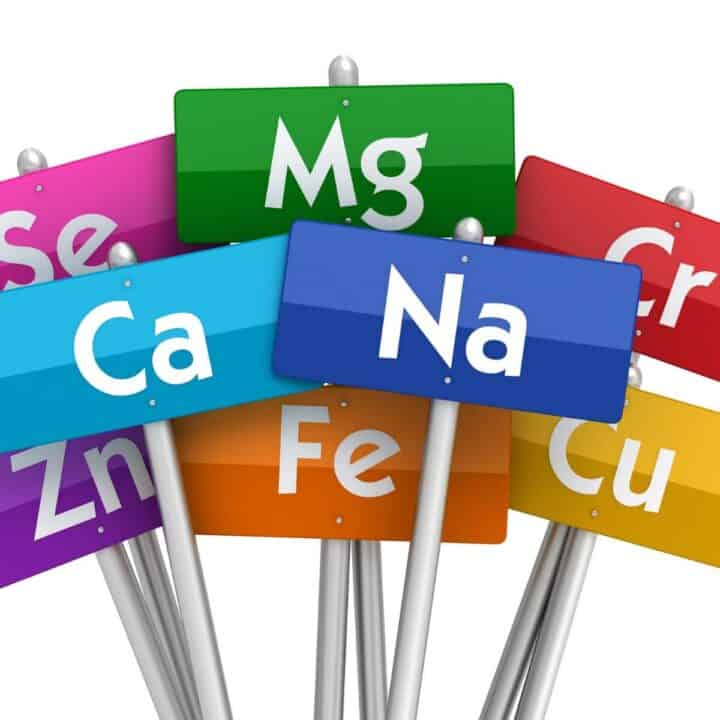
Table of Contents
💚 Minerals Body Needs For Optimal Health
There are some minerals that the body needs for optimal health, like calcium, iron, and zinc. But why are minerals important to humans? There are important minerals for the body to stay healthy, strong, and youthful. How do these important minerals help regulate body functions? So what minerals are needed to stay healthy, strong, and youthful?
For many of us, our health goals are not solely based on fitness or longevity. But in a combination of both. Therefore, we need to look at the health benefits of vitamins and minerals holistically. It's important to understand how minerals help the body.
They're not just ways to improve our quality of life now. But also to improve our quality of life in the long term and expand our lives, so that we can enjoy that quality of life for many more years.
⁉️ Why Are Minerals Important For The Body?
Minerals are inorganic elements found in soil and water, absorbed by plants and consumed by humans. Unlike vitamins, which are organic and can be broken down by heat, air, or acid, minerals maintain their chemical structure, making them stable components of a healthy diet. What exactly is the role minerals play in the body? They are fundamental in various bodily processes, including:
- Regulating Body Functions - Minerals help regulate processes such as heart rhythm, blood pressure, muscle contraction, and neural function.
- Building and Maintaining Tissues - Minerals like calcium and phosphorus are crucial for bone health, while others like zinc and magnesium support muscle function and tissue repair.
- Supporting Enzymatic Reactions - Many minerals act as cofactors for enzymes, aiding in metabolic reactions essential for energy production and overall cellular health.
🩺 Minerals And Longevity: Unlocking The Key To Health
Longevity is not just about genetics, but also how well you nourish and care for your body. The right balance of minerals can help unlock your body's full potential, keeping you healthy and youthful. Proper mineral intake can support cellular function, maintain telomere length (which is associated with aging), and ensure that your genes express themselves optimally.
2 Factors Of Longevity
Longevity is a combination of two factors. One is our genetic longevity, which is our unbridled potential. Look for your oldest ancestor or living relative. That is around the age you could live to. Maybe even longer. If they have not yet reached their maximum. This means most of us have the basic potential to live until our eighties or nineties. As most of us have a relative who reached that age.
🔑 Minerals Unlock The Key To Health
But the other longevity factor is our health. To put it bluntly, your longevity means nothing if you step out into the middle of a busy highway, because you are actively interfering with it. Likewise, when your health is not under control, you are interfering with your longevity by not allowing your cells to reach their full potential.We need to unlock that maximum potential by looking after ourselves.

Minerals Our Body Needs
So, what are minerals?
Minerals are an important key to achieving our maximum potential health longevity. When the right minerals are in our bodies in the right amounts, our cells can work to the best of their ability, our telomeres stay long, and our genes can express themselves in the best way possible.
On the other hand, when we are deficient in key minerals for longevity, the genes responsible for keeping our cells healthy and making us live longer will not be active. Thus, we will not enjoy our maximum potential.
💚 Two Types Of Minerals: Macro And Trace
Minerals are divided into two types based on the amount required by the body.
- Macrominerals - Required in larger amounts, these include calcium, magnesium, phosphorus, sodium, potassium, chloride, and sulfur.
- Trace Minerals - Needed in smaller quantities, trace minerals include iron, copper, zinc, manganese, iodine, cobalt, fluoride, and selenium.
What are some minerals your body needs every day to stay healthy and strong?
Macro Minerals
Macro means large. Our bodies need larger amounts of macronutrients to function properly. Macro minerals include: calcium, magnesium, phosphorus, sodium, potassium, chloride, and sulfur.
Trace Minerals
Trace minerals are needed in smaller amounts. The trace minerals in the body include iron, copper, zinc, manganese, iodine, cobalt, fluoride, and selenium.
⁉️ How Can You Get The Minerals You Need?
The body needs about 1,000 to 2,000 minerals. But the body is always in need. It does not recognize when it has enough, or when it needs more. The body will store minerals when they are abundant. However, it will not store them for future use.
Body stores and reserves of minerals are depleted by: stress, poor diet, environmental toxins, inadequate sleep, insufficient exercise, and certain diseases, including cancer. Many of these minerals are absorbed by the food we eat.
The minerals needed for the body to function properly for health include calcium, copper, iron, magnesium, sodium, phosphorus, and zinc. The best food sources of minerals for adequate health are nuts, seeds, legumes, vegetables, fruit, and grains.
🥗 Food Sources Of Minerals
We need to supply our body with the proper minerals, and one of the best ways to do this is by adding in natural foods sources rich in these minerals.
How Many Minerals Does The Body Need?
Here is a list of important minerals that our body needs for optimal health, and some examples of foods that include those key minerals.
🔝 Top 6 Essential Minerals For Optimal Health
There are some key minerals that our bodies need for optimal health. By including foods with these key minerals, you can help support better nutrition for the proper health of the body. Here's an in-depth look at the top six essential minerals that your body needs to stay healthy, strong, and youthful.

1. Iron: The Oxygen Transporter
Iron is an essential mineral needed for the body to promote longevity due to its relationship with vitamin C. Many people assume that the antioxidant powers of vitamin C are all down to the vitamin itself.
Even many informed people assume that vitamin C is responsible for iron processing, but that the reverse relationship is impossible. But both are wrong.
The relationship between the mineral iron and vitamin C goes both ways.
Iron helps the antioxidant powers of vitamin C take effect, helping us reverse the damage done by free radicals, and encouraging our cells to become and remain youthful. The younger our cells, the longer we will live.
Role In The Body
Iron is crucial for the production of hemoglobin, the protein in red blood cells that carries oxygen from the lungs to the rest of the body. It also supports energy production and a healthy immune system.
How It Promotes Youthfulness
Iron's relationship with vitamin C enhances its antioxidant properties, helping combat oxidative stress and promote cellular health. Healthy, oxygenated cells contribute to youthful appearance and vitality.
Food Sources
Shellfish (oysters, mussels), broccoli, spinach, quinoa, red meat, turkey, pumpkin seeds, tofu, legumes (chickpeas, lentils).
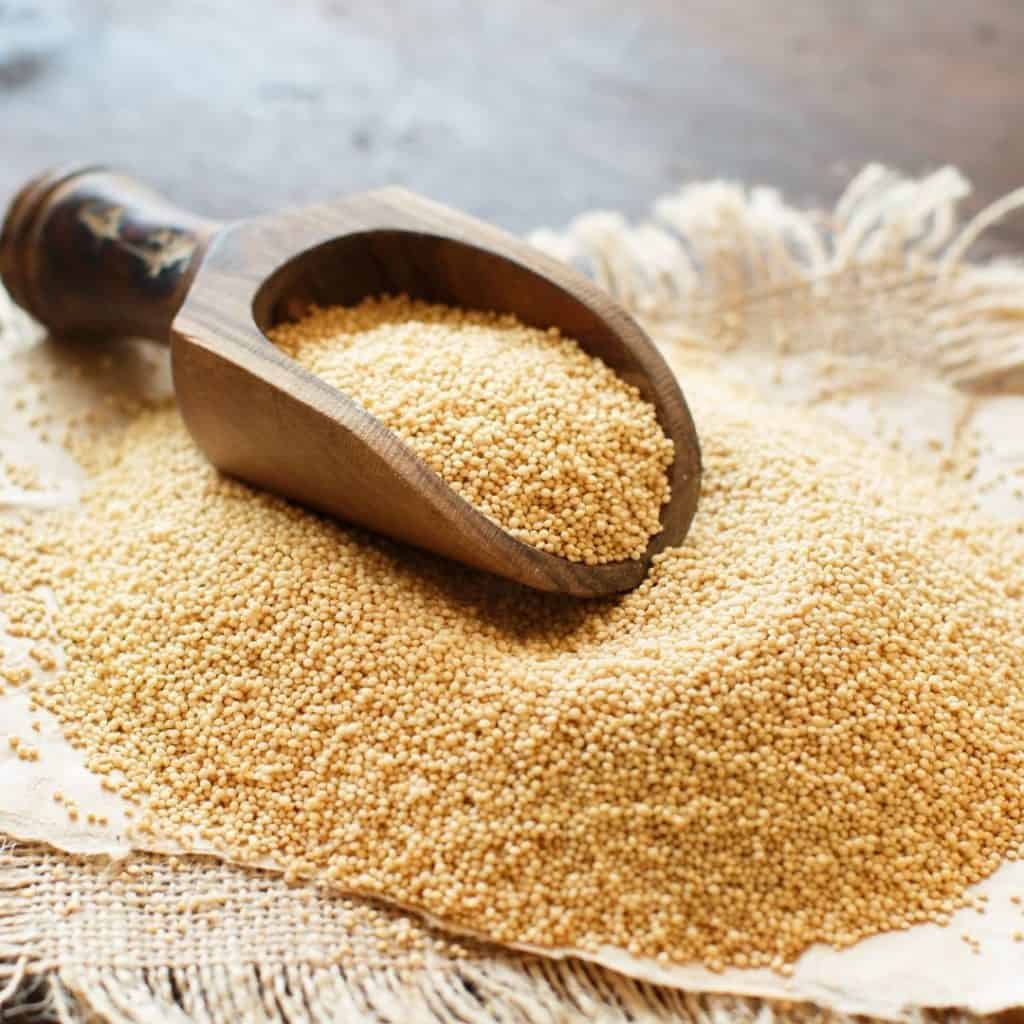
2. Calcium: The Bone Builder
Calcium is another mineral needed for the body that promotes the activation of an antioxidant vitamin. Here, the presence of vitamin D encourages the body to use calcium to the best of its ability.
Calcium also promotes the antioxidant benefits of vitamin D. Furthermore, as vitamin D is produced inside the body, the calcium mineral intake can help promote the creation of even more vitamin D, giving us a healthy dose of this brilliant hormonal vitamin.
Role In The Body
Calcium is essential for building and maintaining strong bones and teeth. It also plays a key role in nerve transmission, muscle contraction, and blood clotting.
How It Promotes Youthfulness
Adequate calcium intake helps prevent bone density loss and osteoporosis, common in aging populations. It also promotes the antioxidant benefits of vitamin D, which supports cellular health.
Food Sources
Seeds, almonds, tofu, figs, broccoli, lentils, bok choy, kale, sardines, amaranth, calcium-fortified foods, and dairy products.
3. Zinc: The Immune Booster
Zinc is another mineral essential to keeping our cells working to the best of their ability and promoting longevity. Literally, every organ in our bodies works better when we consume enough zinc.
Most importantly, our livers and kidneys work far better. This is important, because a healthy liver cleans your body of toxins, and healthy kidneys will flush these toxins out. When toxins are allowed to build up in the body, they degrade us from the inside out, promoting an acidic diet and shortening our lives.
On the other hand, when we flush out enough toxins, we allow our bodies to heal, and move towards better health and longevity. In addition, zinc has been shown to have a positive effect on strengthening the gut lining. Thus, limiting your susceptibility to leaky gut syndrome.
Role In The Body
Zinc is involved in numerous aspects of cellular metabolism. It supports immune function, protein synthesis, wound healing, DNA synthesis, and cell division.
📥 GET THIS RECIPE IN YOUR INBOX 📥
How Zinc Promotes Youthfulness?
Zinc's role in DNA synthesis and cell division is vital for maintaining youthful skin and repairing damaged tissues. It also strengthens the gut lining, reducing the risk of leaky gut syndrome and improving overall health.
Food Sources Of Zinc
Shellfish, cashews, hemp seeds, pumpkin seeds, chickpeas, lentils, eggs, mushrooms, red meat, and dark chocolate.
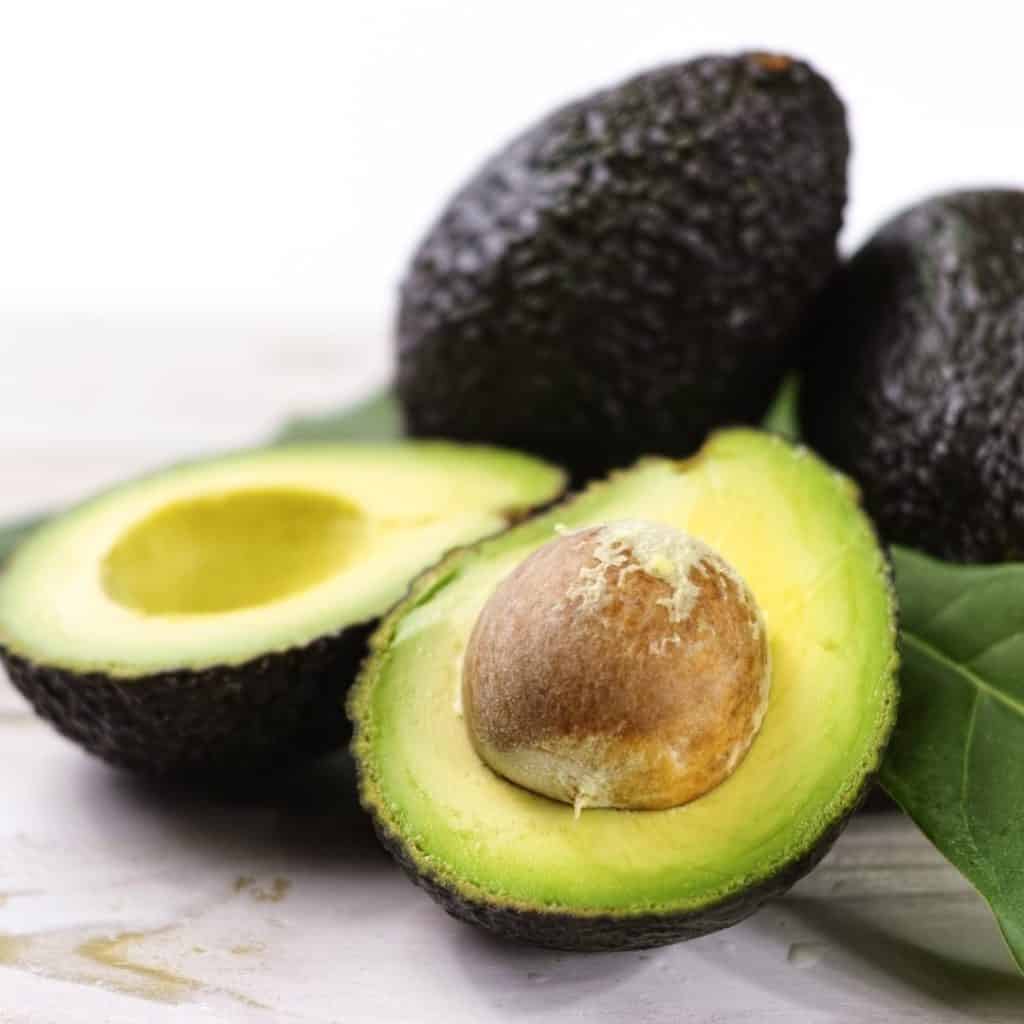
4. Magnesium: The Relaxation Mineral
Magnesium is an essential element that has many important functions in the body. It plays a role in energy production, hormone regulation, and bone formation.
Magnesium also helps produce adenosine triphosphate (ATP), which is the body's energy source. It is important to consume magnesium to stay healthy. It is important to consume magnesium, as it is an essential nutrient for the body's health. Magnesium helps peristalsis by allowing your muscles in your intestines to relax. If you are low in magnesium levels, it can lead to constipation.
Role In The Body
Magnesium is involved in over 300 enzymatic reactions, including energy production, muscle and nerve function, and blood glucose control. It also helps regulate blood pressure and supports a healthy immune system.
How It Promotes Youthfulness
Magnesium's role in energy production and hormonal balance helps reduce stress, promote better sleep, and maintain a calm and youthful appearance. It also helps in muscle relaxation, prevent cramps and promote physical activity.
Food Sources Of Magnesium
The macro mineral, magnesium, can be found in foods including avocados, lentils, quinoa, chickpeas, soybeans, pumpkin seeds, whole grains (wheat, oats, buckwheat), bananas, leafy greens (spinach, kale, collard greens), and almonds.

5. Potassium: The Heart Protector
Potassium is an important mineral rich food for the body. It's used in many vital functions, including muscle contraction, nerve impulses, and regulating blood pressure. The body can store a small amount of potassium in the body, but it must get rid of excess amounts through the kidneys and sweat glands. Potassium is also important for bone health, and it's needed in the body to make the hormone calcitriol.
Role In The Body
Potassium is crucial for maintaining proper heart and muscle function, nerve transmission, and fluid balance. It helps regulate blood pressure by counteracting the effects of sodium.
How It Promotes Youthfulness
By supporting heart health and blood pressure regulation, potassium reduces the risk of cardiovascular diseases, helping you maintain vitality and an active lifestyle as you age.
Food Sources of Potassium
Foods rich in potassium include bananas, avocados, potatoes, sweet potatoes, dried fruits (raisins, apricots), pomegranates, lentils, cannellini and black beans, Swiss chard, and beets.
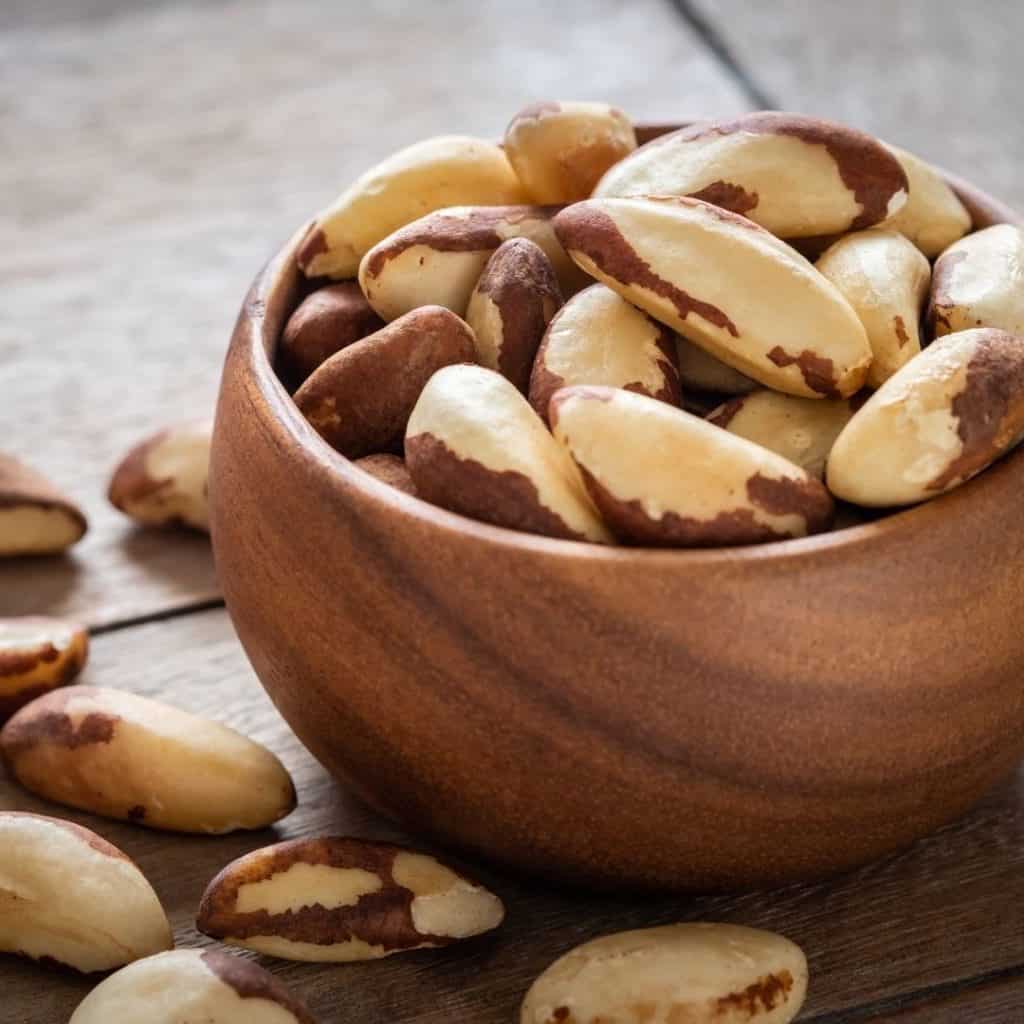
6. Selenium: The Cellular Defender
Selenium is an important trace mineral of the body. It has many benefits for health and longevity. Selenium can help protect against chronic diseases like cancer, diabetes, heart disease, and stroke. Selenium also helps strengthen the immune system.
Role In The Body
Selenium is a powerful antioxidant that helps protect cells from damage caused by free radicals. It also supports thyroid function and the immune system.
How It Promotes Youthfulness
Selenium's antioxidant properties help slow the aging process by protecting cells from oxidative stress. It also supports healthy hair and skin, contributing to a youthful appearance.
Food Sources
Selenium is found in foods like Brazil nuts, cashews, sunflower seeds, lentils, red meat, turkey, seafood (yellowfin tuna, shrimp, and halibut), spinach, eggs, and brown rice.
✅ Ensuring Adequate Mineral Intake: Tips And Best Practices
Here are the best tips to help ensure you get adequate mineral intake.
Choose Mineral-Rich Foods
Incorporate a variety of mineral-rich foods such as nuts, seeds, legumes, vegetables, fruits, and whole grains into your diet to ensure you get a broad spectrum of essential minerals.
Opt For Mineral-Rich Soil
If possible, source produce grown in mineral-rich soil, as this can enhance the mineral content of fruits and vegetables. Growing your foods in mineral rich soil is a terrific way to ensure your fruits and vegetables are naturally enriched with adequate vitamins and minerals.
In addition, food preparation is important when it comes to lost vitamins and minerals. Most vegetables are best eaten raw, as the vitamin mineral content is more readily available this way.
Mind Your Food Preparation
Cooking methods can affect mineral content. For example, steaming vegetables preserves more minerals than boiling.
Consider Supplementation
If you have a diagnosed mineral deficiency, consider supplementation under the guidance of a healthcare professional.
Should you take a mineral supplement?
Sometimes, an inadequate diet can lead to mineral deficiencies. If your doctor has tested you and discovered you are low on particular minerals, then you can consider supplementation.
If you are an older adult, it is important to note that supplementation has been shown to help reduce respiratory tract infections and help with dementia (1). Mineral deficiencies can lead to poor health, illness and disease, including osteoporosis, decreased immunity, fatigue, irregular heartbeat, and slow wound healing. The mineral supplement I currently take is Mary Ruth's Nighttime minerals.
Avoid Excessive Intake
While minerals are essential, more isn't always better. Excessive intake can lead to toxicity, so balance is key.
Too much of a good thing - mineral toxicity?
Of course, this doesn't mean we should just eat piles and piles of mineral supplements. Over a certain amount, minerals are toxic, which is unsuitable for longevity.
What it does mean is that we need to keep an eye out for mineral deficiencies, and either correct our diet or take a supplement if we suspect a mineral deficiency for iron and calcium, as this will help us lead long, healthy lives.
🩺 Embrace Minerals For Health And Longevity
Minerals are a cornerstone of a healthy, vibrant, and youthful life. By ensuring your diet includes an adequate intake of these six essential minerals-iron, calcium, zinc, magnesium, potassium, and selenium-you can support optimal bodily functions, enhance your energy levels, and promote longevity.
Remember, a balanced diet rich in natural food sources is the best way to nourish your body with the minerals it needs.
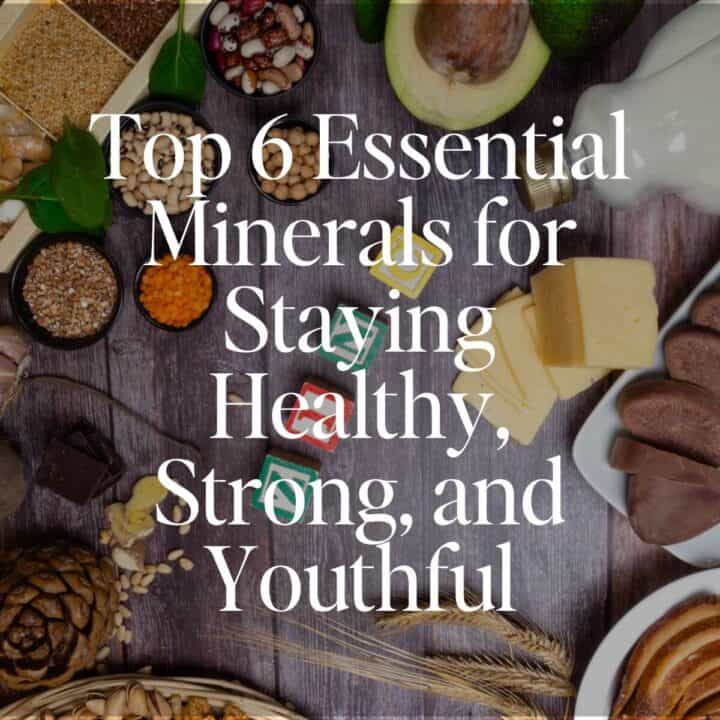
🗣️ What Is Your Favorite Vitamin And Mineral Rich Food?
Were you surprised at the amount of minerals needed for the body to keep your muscles, bones, brain, and heart working properly? Which mineral rich food will you begin to include in your daily meals? Let me know in the comment section below.
I would also love to hear what you think. You can also connect with me @EatYourNutrition on Instagram. #EatYourNutrition #LauraVillanueva
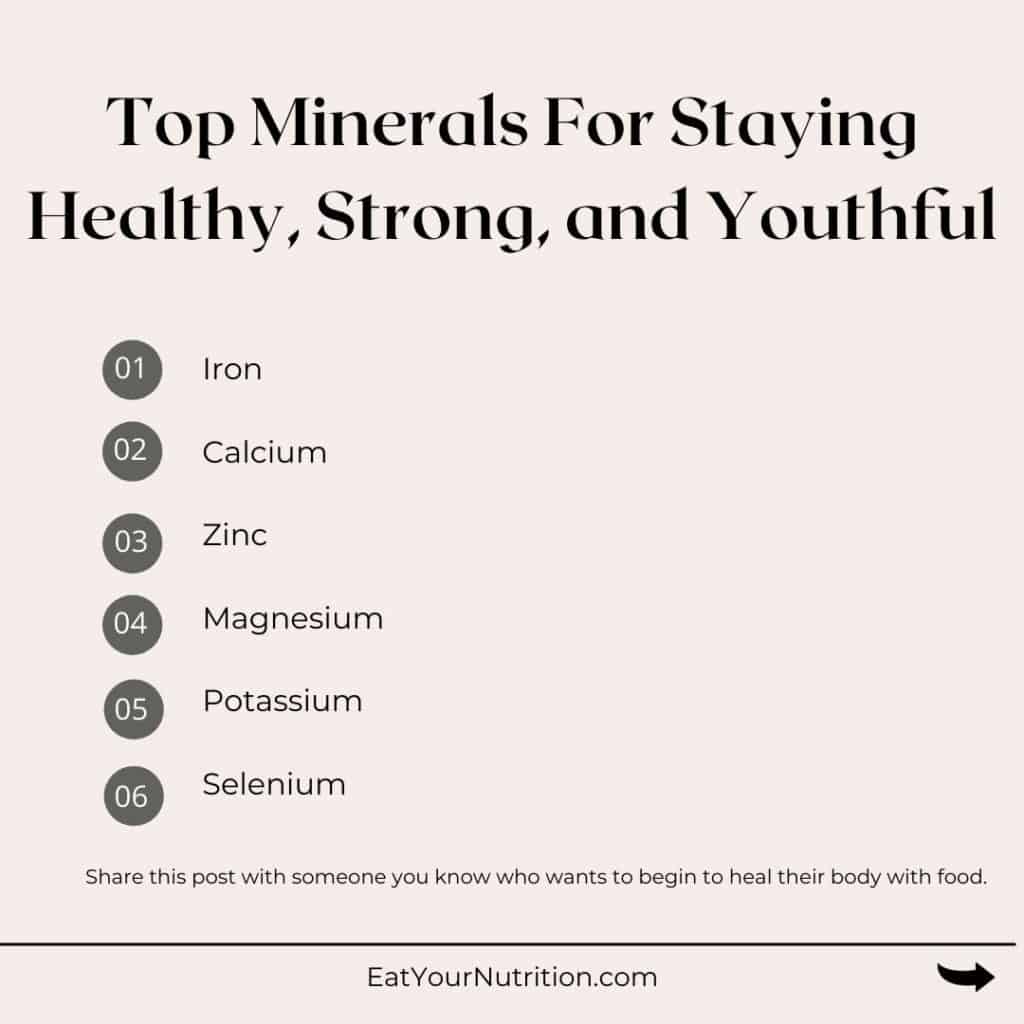
👉 Additional Resources For Holistic Well-Being
Also, for further reading and guidance on how to support your holistic lifestyle check out some of my resources below.
Ready to learn healthy habits, success strategies, and begin a life of wellness through a holistic lifestyle? Download my free guide, Holistic Lifestyle Guide.
- Program - Join my Reset & Renew Nutrition Program. Register today.
- Cookbook - Want a cookbook packed with healthy recipes to properly fuel your holistic lifestyle? Order the healthy eating cookbook, Beauty Nutrition Index Cookbook.
- Group Support - Join my Featured Nutrition Challenge. All seasonal nutrition challenges come with a meal plan, recipe guide, grocery shopping list, and a seasonal featured nutrition theme.
📚 References
- Bennett, J., 2014. Mandell, Douglas and Bennett's principles of infectious diseases - vol 1. Saunders.



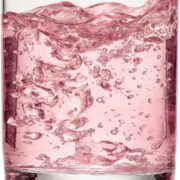





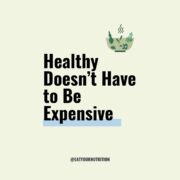




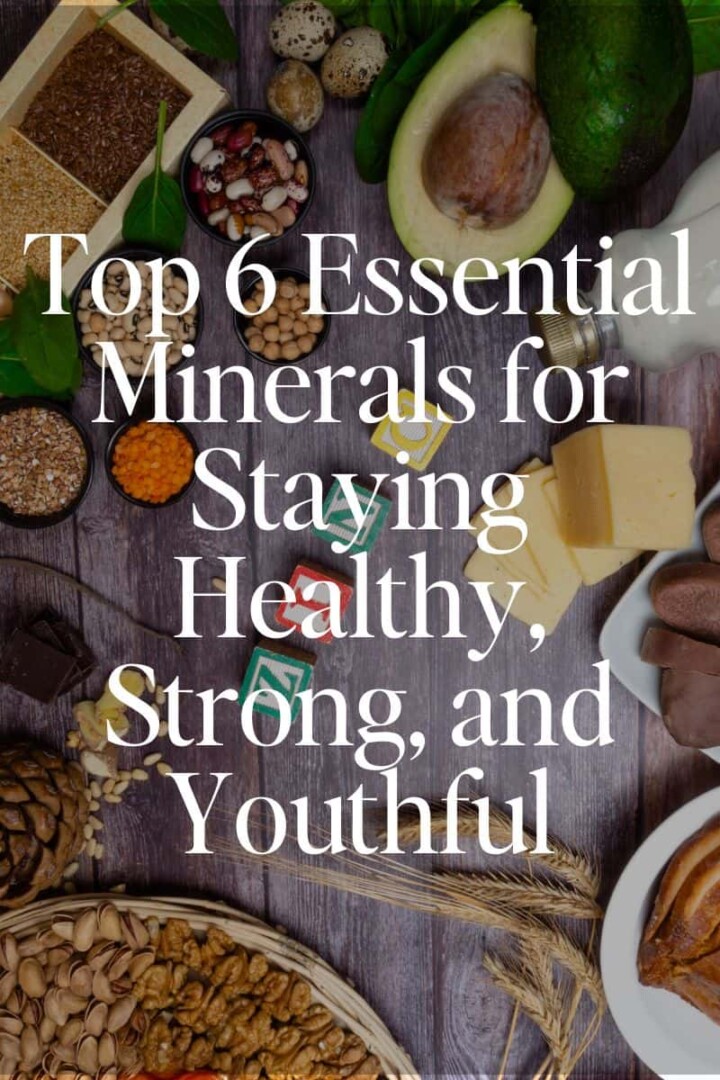
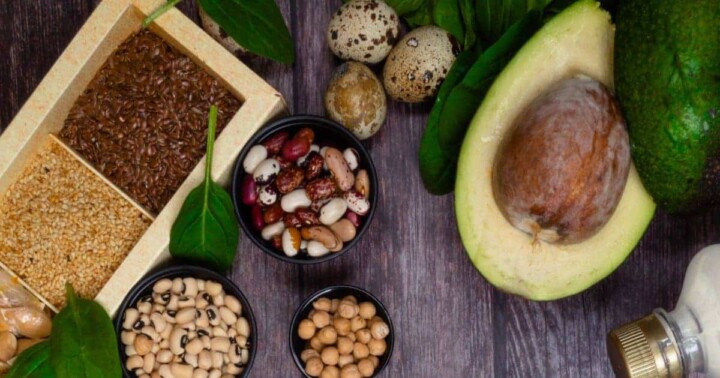

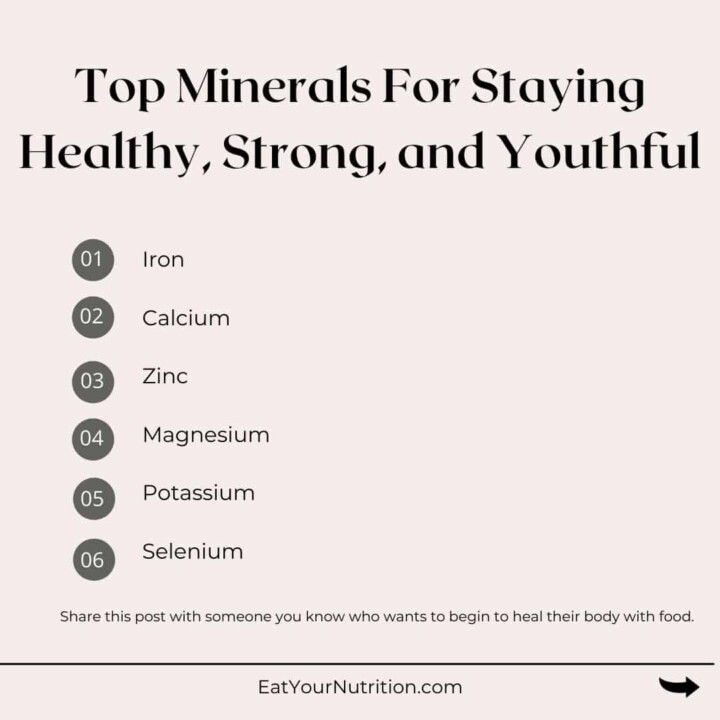
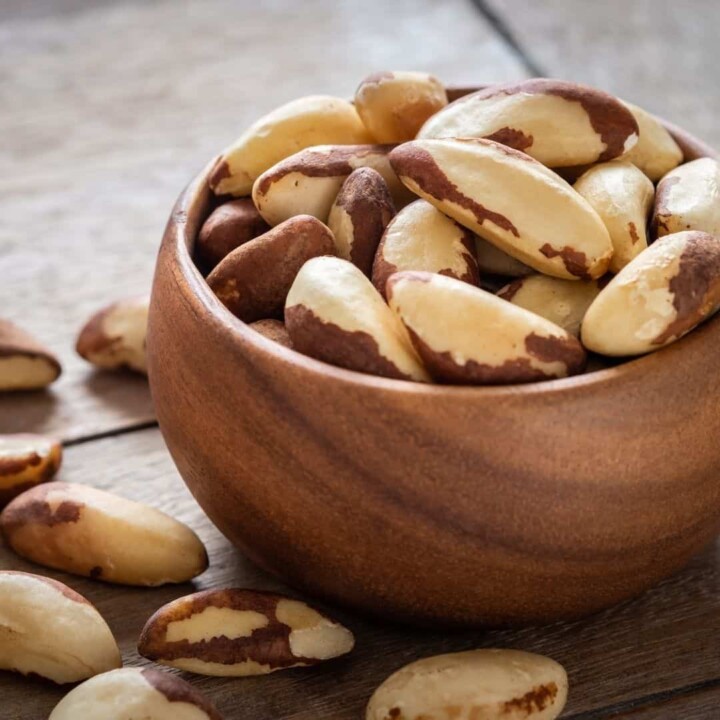

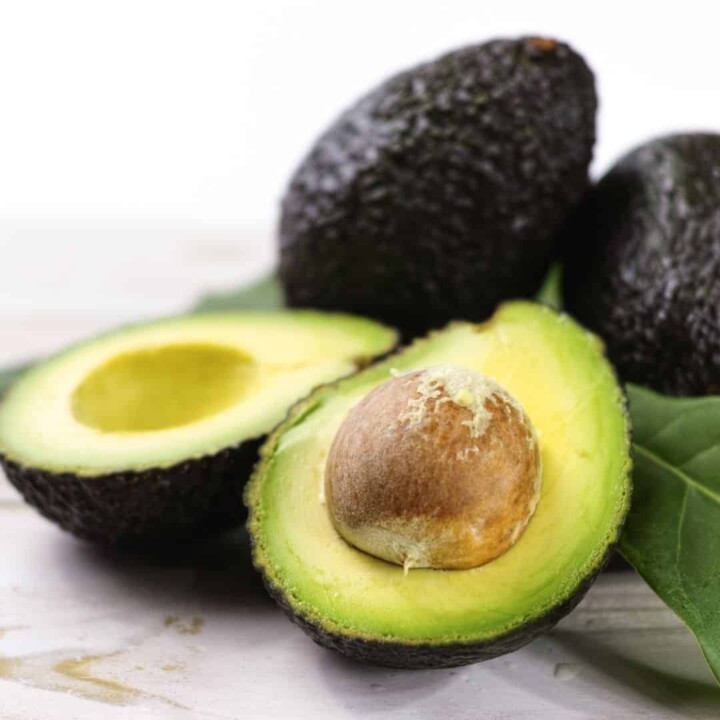
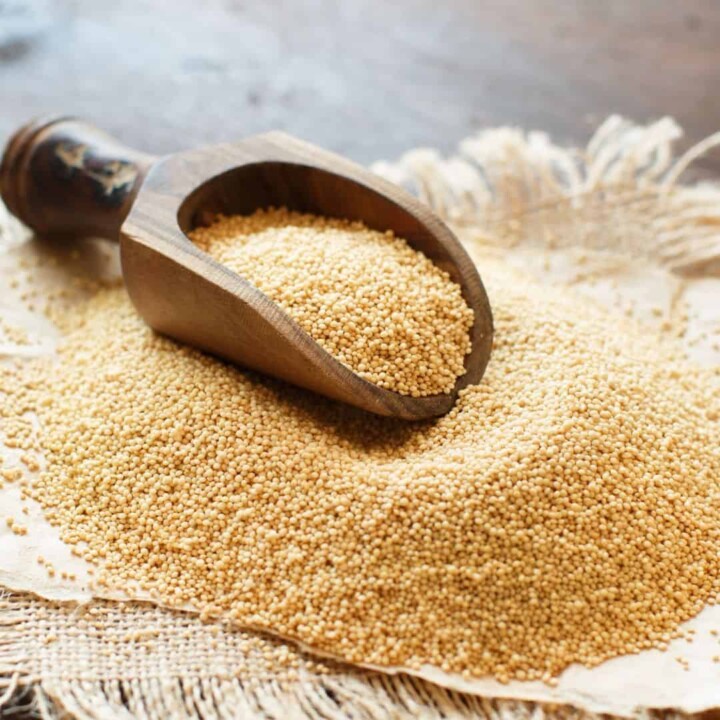





Comments
No Comments